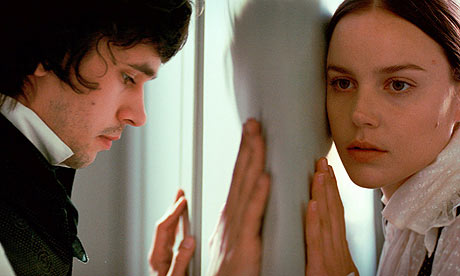
Some melodious plot
Keats believed "nothing ever becomes real till it is experienced". If that's true, then the chance to sit in the poet's own back garden should be seized by all next week. The reopening of Keats House in Hampstead's Keats Grove (what a coincidence) will be marked on 24 July with a picnic performance of Keats in Hampstead. The play was first staged there to acclaim a few years ago, before the house was renovated. The modest show celebrates the poet's love for Fanny Brawne, who shared the house with him and others in the spring of 1819, and draws on his candid letters to Brawne and his resonant poetry. Playwright James Veitch tells me that you can sit beneath the very plum tree under which Keats did the most famous bit of literary birdwatching of all time. After the show, guests can move inside to inspect the poet's refurbished home. Performances run until 9 August.
Veitch is ahead of the poetic curve here, because Keats House museum is braced for the impact this autumn of Jane Campion's lush film Bright Star, with Ben Whishaw as Keats and Abbie Cornish as Brawne. The film, which had its premiere in Cannes, proves that "a thing of beauty" can sometimes be not quite enough, but it does feature a memorable performance from Paul Schneider as Keats's jealous pal and amanuensis Charles Brown, the man who set down his own recollection of the incident with the bird: "In the spring of 1819 a nightingale had built her nest near my house. One morning Keats took his chair from the breakfast table to the grass plot under a plum tree where he sat for two to three hours. When he came into the house, I perceived he had some scraps of paper in his hand and these he was quietly thrusting behind some books."
Hot lessons in love
Those hoping to hone their love-letter-writing skills to Keatsian standards can pick up tips from Viola Fort's Untitled Books at the Port Eliot festival next weekend. Fort's website, which was set up a year ago, is a literary service and an online bookshop with editorial content from new and established writers. It's running a Literary Lonely Hearts Club for three days at the Cornish festival; the programme of readings and events is designed, in part, to bring potential lovers together. "No longer will smitten festivalgoers have to spend the next 12 months wondering what might have been, and hoping that the object of their desire will be at next year's festival," promises Fort, undaunted by the suggestion that she is playing with fire.
Barack gets down to brass tacks
President Obama is now being used to sell everything from green politics to pizza, but the Hypnotic Brass Ensemble from Chicago have more reason to employ the gimmick than most. "I cannot get enough of these guys; they soothe the soul," Obama reportedly exclaimed recently. This Sunday, the nine-piece funk and jazz collective will be headlining The Big Bish Bash, the grandstand finale of Brass: Durham International festival in County Durham. The band started as a street ensemble before recording their first album five years ago. The horn section features eight sons of the inventive Kelan Phil Cohran. (Here he is playing his patented Frankiphone, or Space Harp.)
The plays what they wrote
Hot on the heels of the news that Eric Morecambe is to be celebrated in a one-man show at this year's Edinburgh festival comes fresh intelligence of a planned BBC biopic about the double-act who once defined popular television entertainment. Transferring its successful comedy biopic formula from BBC4 to BBC1, the corporation has asked Peter Bowker, best known for Occupation and Blackpool, to write a 90-minute drama on the early years of Morecambe and Wise. Bowker regards the duo as "true British legends" and will not, it seems, be digging for dirt. "The comedy style at the time was very much about making gags to the audience, but Morecambe and Wise realised quite early on that they could be funny by talking to each other as well," he says. "I've written quite a lot of extremely dark scripts lately so it was incredibly refreshing to be writing some comedy for a change."
The plinth and the pauper
I am adjusting to life as a commoner again after my short stint as a monarch, standing on top of an empty plinth in Trafalgar Square. It has been quite a comedown. Like 600 or so others by the end of this month, I was part of Antony Gormley's 100-day art project, One and Other. Thanks to all those who suggested ideas for my moment at the top, and who Twittered encouragement during my hour. Because it was Bastille Day and tea time, I dressed up as Marie Antoinette and gave out cakes. And, to spice it up, I also held revolutionary slogans from down the ages with an Observer billboard borrowed from my local newsagent.
Researching Marie Antoinette, I found the Observer's original report of her execution in front of the crowds in 1793: "After the head was displayed by the Executioner, three young women were observed dipping their handkerchiefs in the streaming blood of the deceased Queen." It seems I got off lightly.

